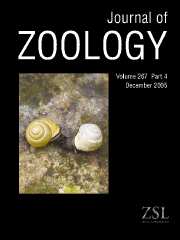Article contents
Interactions between the red squirrel (Sciurus vulgaris), great tit (Parus major) and jackdaw (Corvus monedula) whilst using nest boxes
Published online by Cambridge University Press: 10 October 2001
Abstract
This paper reports upon the use of nest boxes in coniferous woodland by the red squirrel Sciurus vulgaris, great tit Parus major and the jackdaw Corvus monedula over a 6-year period from 1994 to 1999. Initially 30 nest boxes were erected with eight additional boxes being put up in 1995. In the period 1994 to 1997, red squirrels were found to use nest boxes regularly as nesting and breeding sites (7.8 ± 1.0 se litters found annually). Box use was greatest in the summer and autumn months (70% of boxes being used at least once) and declined through the winter (50%) into the spring (45%). The presence of great tit clutches and broods in the spring did not prevent red squirrels from occupying boxes. Only 28% (n = 12) of all the recorded great tit clutches produced fledgling young in 1994 to 1997 and red squirrels were found to have consumed some of the chicks and eggs. The establishment of a jackdaw colony within the woodland led to 86% of the nest boxes being used by the birds in the spring of 1999. Red squirrel occupation of boxes in the spring declined to 7% and only three litters were recorded that year. The study showed that the jackdaw has the capacity to dominate nest boxes during the spring months despite the high density of red squirrels within the reserve.
- Type
- Research Article
- Information
- Copyright
- 2001 The Zoological Society of London
- 4
- Cited by


